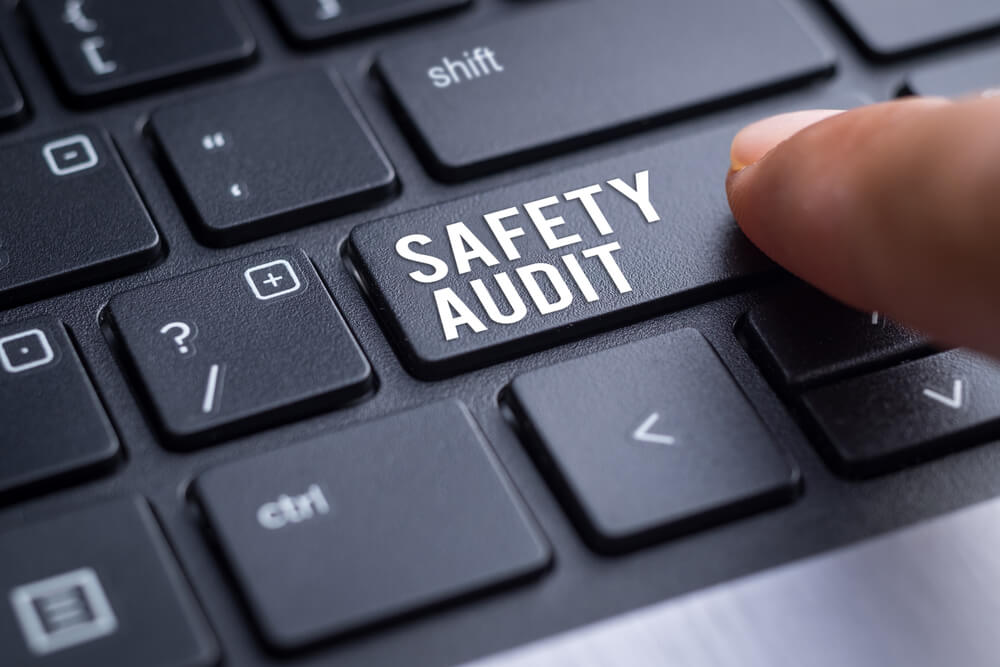Safety audits don't need to be scary - with the right partner, they can provide invaluable insights.
A safety audit involves methodically evaluating how day-to-day workplace activities affect the health and safety of employees. Unlike more frequent inspections, audits comprehensively examine the overall safety management system.
The goals of the audit are to gauge program effectiveness, ensure regulatory compliance, and make recommendations to reduce risks. An external expert gathers data through facility walkthroughs, document reviews, and interviews.
Properly assessing worksites gives companies the information they need to improve safety culture. However, performing rigorous audits requires expertise and resources that many organizations lack.
That's where outside specialists can help. Because safety audits provide so many benefits, from minimizing incidents to mitigating risks, they are a vital component of any safety program.
Why are safety audits important for companies?
Safety audits provide many crucial benefits for organizations.
They help minimize workplace incidents and injuries. By proactively identifying hazards through audits, companies can take corrective actions to reduce risks before accidents occur.
Audits ensure compliance with essential safety regulations like OSHA’s. Documenting adherence to standards provides liability protection if an incident does, unfortunately, happen.
Regular audits promote continuous improvement of safety programs. As risks evolve, audits give the feedback needed to update policies and training regularly.
Conducting audits shows employees that protection is a priority in words and actions. It demonstrates a genuine commitment to safety.
Audits identify weaknesses in existing safety management systems so that companies can maximize their investments in workplace safety.
They can help reduce costs associated with incidents, such as medical expenses, fines, litigation, and more. Savvy companies view audits as a way to control costs.
Audits motivate employees to uphold safety protocols when they know audits are performed regularly. They promote greater engagement.
Because safety audits provide so much value, they should be a fundamental component of any workplace safety strategy. Now, let's look at what's actually involved in performing these vital assessments.
What does the safety audit process involve?
Performing a proper safety audit requires careful planning and execution. Here are the key steps:
- First, management must be informed to ensure the required documentation is available. Employees should also be notified that an audit is taking place.
- Next, the audit team will review procedures, scope the assessment, and assign responsibilities. Background research is conducted, and checklists created.
- When auditing, the team does facility walkthroughs to observe practices firsthand. They interview managers and workers to gain insights.
- The team reviews documents like training logs, incident reports, and safety policies.
- Collected data is then analyzed to identify gaps between current and desired performance. Findings are evaluated to gauge program effectiveness.
- Based on identified deficiencies, the audit team provides recommendations for corrective actions. Each is assigned a priority level and completion date.
- Finally, results are published in a report and shared with leadership. Necessary corrective actions are taken to improve safety.
Now that we've covered the basics of the audit process let's discuss the expertise required to conduct effective assessments.
What expertise is needed to perform effective audits?
Specific expertise is required to conduct rigorous safety audits. Here are some of the critical knowledge and skills auditors need:
- In-depth knowledge of safety principles, industry best practices, and regulations like OSHA. Auditors must be able to assess compliance gaps.
- Strong powers of objective observation to identify risks without bias during facility reviews.
- Investigative skills to pinpoint the root causes of incidents through interviews and data analysis.
- The ability to operate tools and machinery to judge proper use during audits.
- Communication and writing skills to convey findings and recommendations clearly in reports.
- An independent, outside perspective unaffected by internal politics or pressures.
As this overview makes clear, safety auditing requires multifaceted skills. For many companies, finding all that expertise in-house can be a challenge. That leads us to a compelling solution - outsourcing.
What are the advantages of outsourcing safety audits?
Outsourcing safety audits to an external expert offers numerous advantages:
- Cost savings - Companies avoid expenses associated with permanent in-house safety staff when outsourcing, including salaries, benefits, training costs, and overhead. Outsourcing lets organizations pay only for the specific audit services needed at particular times rather than absorbing ongoing wage and overhead costs. This allows effective control over costs related to audits. Outsourcing converts fixed costs into variable costs, providing savings.
- Safety expertise - Outsourcing provides access to experienced safety specialists with extensive knowledge gained from working with various clients across diverse industries. Companies can leverage these outside competencies without bearing the burden and time required to train and develop internal team members. Outsourced experts are also likely to have professional certifications that demonstrate their capabilities.
- Flexibility - Outsourcing allows flexibility to scale audit activities up or down at will based on evolving organizational needs and priorities. Companies can choose project-based or ongoing engagements tailored to their specific requirements at any given time. The flexibility enables right-sized investments in audits.
- Objectivity - Outsourcers provide an independent perspective, as auditors are unaffected by internal biases, hierarchies, or politics. Outside experts bring fresh eyes to evaluate existing safety programs and operations objectively. This avoids conflicts of interest and promotes candid assessments.
- Focus - Outsourcing enables limited internal human resources to focus on core business functions for greater efficiency rather than audits. This allows the concentration of efforts on revenue-generating activities.
- Consistency - When an outsourcer handles safety audits across all company locations, it ensures consistent audit procedures are applied everywhere. Standardization promotes fairness and enables benchmarking.
- Regulatory expertise - Outsourcers have access to regulators' expertise on changing safety regulations and standards like OSHA to share with clients. This ensures companies remain compliant as requirements evolve.
- Best practices - Outsourcers gain insights into industry best practices for safety management that can improve client programs when shared. Access to proven approaches fosters continuous improvement.
- Employee motivation - Outsourcing shows employees that safety is taken very seriously, motivating them to uphold protocols. It demonstrates the company's commitment to protection.
- Risk reduction - Outsourced audits promote active risk reduction by identifying hazards before costly incidents occur. They enable proactive loss prevention, not reactive response.
For all those reasons, outsourcing safety audits is a strategic choice yielding real rewards. Now let's look at one specialized partner ideal for reaping those benefits - professional employer organizations.
Why choose a professional employer organization for outsourced audits?
Given the many benefits of outsourcing safety audits, the next question becomes - who is the ideal partner for this function? Professional employer organizations, or PEOs, are uniquely positioned to provide exceptional value as outsourced safety auditors.
Best-in-class PEOs employ dedicated safety experts who specialize exclusively in workplace safety management and compliance. These professionals have extensive training and focus solely on being up-to-date on the latest regulations, risks, and program best practices.
PEOs also have substantial resources for developing customized safety programs tailored to each client's unique industry, locations, workforce, equipment, and hazards. Their experts have experience creating effective programs for diverse clients.
Because PEOs must remain current on changing safety regulations like OSHA guidance. They serve as an ongoing regulatory affairs resource for customers. Clients can be confident the PEO has the latest compliance insights.
In addition to audits, PEOs can provide integrated HR services like payroll, benefits administration, risk management, and workers' compensation programs. This enables the consolidation of administrative HR functions under one expert provider.
For multi-state employers, partnering with a PEO enables centralized and consistent safety initiatives across all sites, ensuring uniformity. Standardized auditing procedures also allow benchmarking.
And because a PEO essentially becomes an extension of the client's team, they offer these services at very competitive rates compared to other outsourced options. In fact, local PEOs like ZampHR charge around the same amount as most dedicated payroll processors.
For all these reasons, choosing a PEO as an outsourced safety audit partner makes strategic sense for many organizations. The combination of expertise, resources, and integrated services creates compelling value.
In today's complex business environment, safety audits are more important than ever for protecting workers while ensuring compliance and controlling costs. By partnering with a professional employer organization, companies can confidently tackle this critical function. PEOs can handle outsourced HR and safety audits across the organization.



